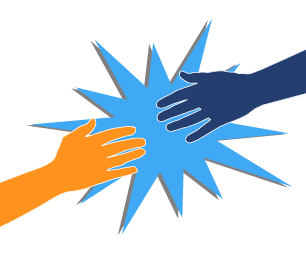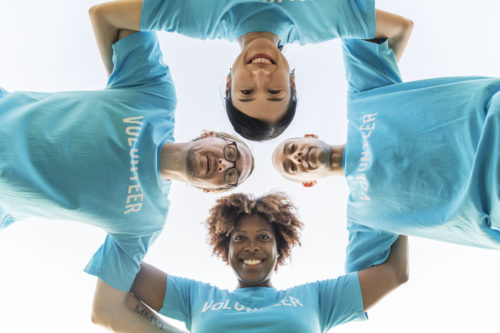So if our happiness and our success are best predicted by the quantity and quality of our relationships with others, and our relationships are built through small moments of positive connection, the question remains: How can we best engineer positive connection? There are many ways, but the best way is to become one of life’s big givers.
For starters, we know that generous people reap significant rewards in business settings. According to Adam Grant, professor at the Wharton School of Business and author of Give and Take: Why Helping Others Drives Our Success, givers develop superior networking, collaborating, evaluating, and influencing skills. So over the long haul, they tend to be the most successful.

We also know that helping others improves our physical health and longevity. People who volunteer tend to experience fewer aches and pains, and giving help to others protects overall health twice as much as aspirin protects against heart disease. People fifty-five and older who volunteer for two or more organizations have an impressive 44 percent lower likelihood of dying—and that’s after sifting out every other contributing factor, including physical health, exercise, gender, marital status, and smoking. This is a stronger effect than exercising four times a week or going to church; it means that volunteering is nearly as beneficial to our health as quitting smoking!
We feel good when we give because we get what researchers call a “helper’s high,” or a distinct physical sensation associated with helping. About half of participants in one study reported that they felt stronger and more energetic after helping others; many also reported feeling calmer and less depressed, with increased feelings of self-worth. This is probably a literal “high,” similar to a drug-induced high. For example, the act of making a financial donation triggers the reward center in our brains that is responsible for dopamine-mediated euphoria.
Similarly, helping others and receiving help are associated with lowered anxiety and depression. Adolescents who identify a strong inclination to help others are three times happier than those who lack such altruistic motivation. Teens who are giving, hopeful, and socially effective are also happier and more active, involved, excited, and engaged than their less giving counterparts. Generous behavior reduces adolescent depression and suicide risk, and several studies have shown that teenagers who volunteer are less likely to fail a subject in school, get pregnant, or abuse substances. Teens who volunteer also tend to be more socially competent and have higher self-esteem.
Although in many of these studies it may be that happier and healthier people are more likely to volunteer in the first place, it is important to note that experiments have demonstrated again and again that the effects of kindness on our health and happiness are causal. It isn’t just that kind people also tend to be healthier and happier (and that might be why they are kinder in the first place), but kindness toward others actually causes us to be happier, improves our health, and lengthens our lives. Being kind to others strengthens our social bonds. Giving to others also increases our sense of self-worth—heightening our sense that we have something to offer the world—which makes us feel more satisfied with our lives. But that’s not all that is at work here.
Most of us know from experience that when our own worries take center stage—What did she think of me? Will I get there on time? Will I have enough money this month?—we stress ourselves out. Heart attacks and other stress-related illnesses are highly correlated with how much people reference themselves in interviews, using words like I, me, my, mine, myself. In one study, patients with severe disease were more self-focused and less other-focused.

Indeed, giving to others makes us healthier and happier because it makes us less preoccupied with ourselves, thereby reducing stress and reversing its damaging effects on the body. “One of the healthiest things that a person can do is to step back from self-preoccupation and self-worry, as well as from hostile and bitter emotions,” writes altruism expert Stephen Post; and “there is no more obvious way of doing this than focusing attention on helping others.”
One study showed, for example, that people who were feeling worried and stressed about their finances felt better when they offered social support to others. Another study found that people who tend to help others are far more resilient in the face of stress than non-helping people. Kindness redirects our energy toward things that make us feel good, reducing the toll that negative feelings have on our health and happiness.
This post is from a series about social connections from the “Science of Finding Flow,” an online course I created as a companion to my book The Sweet Spot: How to Accomplish More by Doing Less. Want to go on to the next class or start the course from the beginning? It’s free! Just go to The Science of Finding Flow course page. Enjoy!

